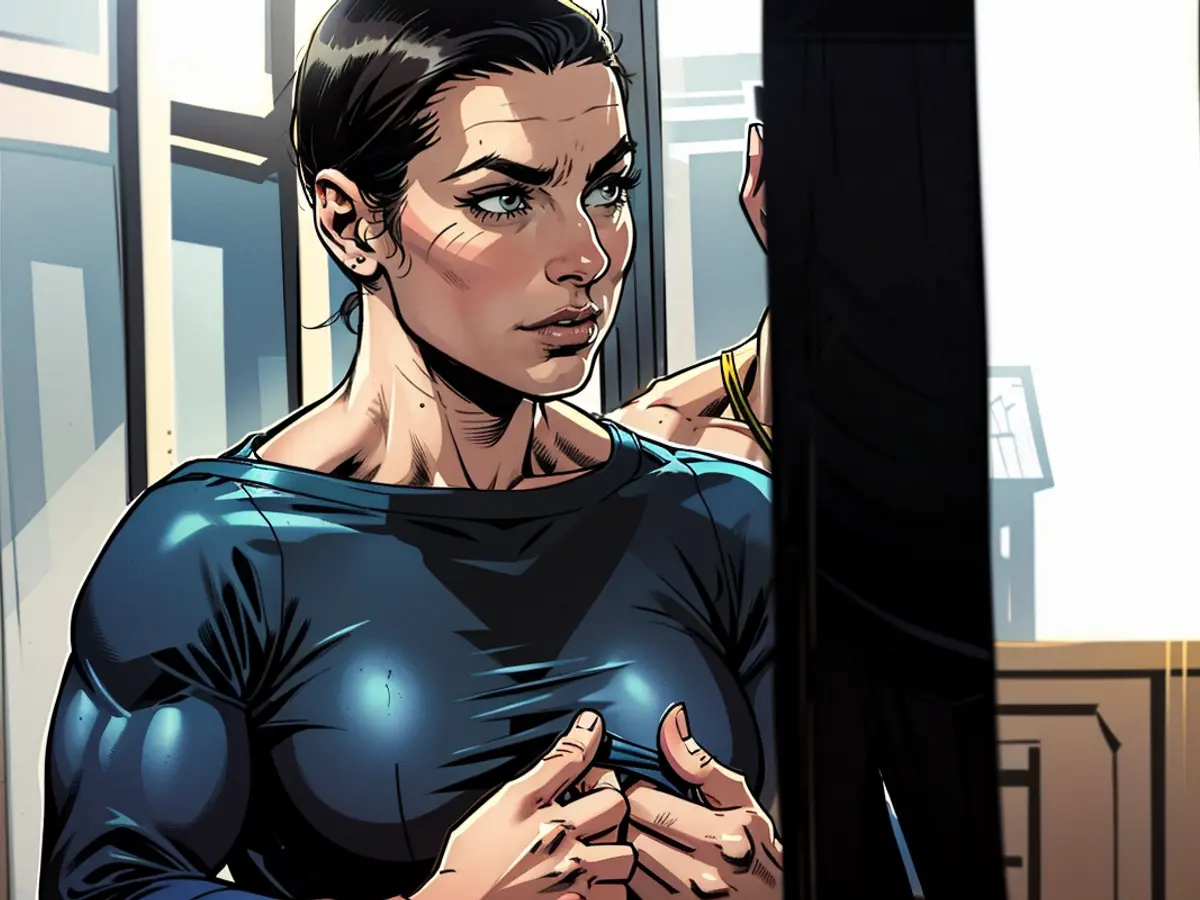Absent any evidence of Belarus' most infamous detainee
Relatives and acquaintances are concerned: Maria Kolesnikova, the most prominent opposition figure, has been imprisoned in a Belarusian penal colony for four years. Her family is unable to visit her, and medical professionals are prohibited from seeing her. Fellow inmates are forbidden from communicating with her as well.
The last communication between Kolesnikova's family and her was over 18 months ago. Previous cellmates claim that Kolesnikova asked for medical aid from her small cell. Her father emphasizes that the 42-year-old is seriously ill. Despite attempts to visit his daughter in the penal colony near Gomel, the guards continuously denied him entry.
In May or June, Kolesnikova was taken to a Gomel hospital, but there is no information on the outcomes of her treatment. A former cellmate, who wished to remain anonymous due to fear of further repression, confirmed that they had heard nothing regarding Kolesnikova's well-being since their release in August. "I can only pray that she is still alive," says her father, Alexander Kolesnikov. "The authorities disregard my requests for a visit and for letters - it's an overwhelming feeling of helplessness for a father."
Kolesnikova gained international attention as a professional flutist before her political engagement. She garnered fame during the protests after the disputed election in August 2020. The authoritarian president Alexander Lukashenko won a sixth term by suppressing the opposition, resulting in thousands of people taking to the streets. Kolesnikova was often at the forefront of these demonstrations.
In September 2020, the Belarusian authorities attempted to deport the activist to Ukraine but were refused by Kolesnikova. She tore her passport into pieces at the border and then was re-arrested and sentenced to an 11-year prison term the following year for alleged seizure of power attempts in the country.
Severe conditions
According to the anonymous former cellmate, the prison in Gomel operated under "martial law"-like conditions. "The other prisoners were strictly prohibited from speaking to Maria or even making eye contact with her," she claimed. In November 2022, Kolesnikova was taken to an intensive care unit for tumor surgery. She was reportedly last overheard speaking to guards six months ago. Other inmates claimed that doctors had not visited her for "a very long time."
Kolesnikova's sister, Tatjana Chomitsch, who resides abroad, stated that former cellmates reported that Kolesnikova now weighs only about 45 kilograms. "They are systematically killing Maria," Chomitsch said, asserting that this is a critical phase for her sister. Since February 2023, Chomitsch has not received any letters from her sister. According to former cellmates, letters addressed to Kolesnikova are destroyed in front of the prison staff.
Kolesnikova is one of the most prominent political prisoners in Belarus - but not the only one. The UN Human Rights Committee has urged the country to take "urgent measures" to protect imprisoned activists without contact with the outside world. In September, the European Parliament called for the Belarusian government to release all political prisoners.
According to human rights organization Viasna, there are approximately 1300 political prisoners in Belarus, including Ales Bjaljazki, the founder of the organization who was awarded the Nobel Peace Prize. At least six have died in custody. For these six individuals, as well as for Alexei Navalny in Russia, aid arrived too late, states Chomitsch. "We and the Western world have little time left to save Maria's life."
There has been no news of other detained opposition leaders for over a year. This includes Sergei Tikhanovsky, who intended to challenge Lukashenko in the 2020 election but was subsequently arrested. His wife, Svetlana Tikhanovskaya, who took his place, was forced to leave the country the day after the election. Prominent opposition politician Viktor Babaryka was also arrested just before the election. Kolesnikova was his campaign manager. Contact with opposition politician Mikhail Statkevich and Kolesnikova's lawyer Maxim Znak has been lost since winter 2023.
Lukashenko claims that there are no political prisoners in Belarus. However, in recent months, he has released 115 individuals whose convictions had political elements. Critics view this action as an attempt to improve relations with the EU in order to avoid being completely dependent on Moscow.
"The Lukashenko regime is interested in not becoming a part of Russia and thus aims to maintain a certain degree of communication with the West," says Belarus expert Alexander Friedman. A relaxation of sanctions and at least partial recognition of the results of the upcoming presidential election would be advantageous for this purpose. However, opponents of the government and human rights activists see no evidence of a political change of course in Minsk, as all major representatives of the democratic movement remain in detention. "The repression continues," emphasizes Chomitsch. "The West should encourage Lukashenko to release more political prisoners." The "regime" is sending clear signals - and it is important to take advantage of this opportunity.
Despite being a member of the Russian Federation, Kolesnikova's father, Alexander Kolesnikov, has repeatedly attempted to visit his daughter in the penal colony near Gomel, but his requests have been continuously denied. Kolesnikova's health is a significant concern, with her father stressing that she is seriously ill and has not received medical aid for an extended period.








